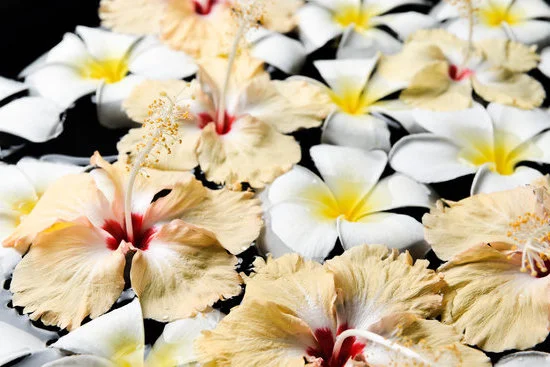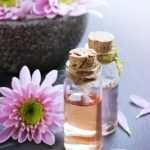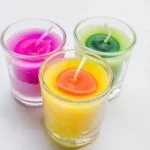Aromatherapy has gained popularity for its potential to promote health and wellness. Essential oils are used in various ways, but how realistic is aromatherapy for everyday life? This article aims to explore the concept of aromatherapy and its practical application in daily living.
Tracing back its origins, aromatherapy has been utilized for centuries, with roots in different cultures and traditions around the world. The practice holds significance not only for its therapeutic benefits but also for its cultural and historical relevance. Understanding the history of aromatherapy provides insight into its continued use in modern times.
Beyond just pleasant scents, aromatherapy is believed to offer a wide range of physical and mental health benefits. From stress relief to improved sleep quality, the use of essential oils has been linked to positive outcomes. In this article, we will delve into the various advantages that aromatherapy can offer for day-to-day well-being.
History of Aromatherapy
Aromatherapy has a rich and varied history that dates back thousands of years, with records of aromatic plant use for healing and religious rituals found in ancient Egyptian, Chinese, Indian, and Greek civilizations. The practice of using essential oils extracted from plants for therapeutic purposes has been an integral part of traditional medicine and healing practices around the world.
In many cultures, aromatic plants were revered for their perceived powers to heal the body, uplift the spirit, and ward off illness.
One of the earliest recorded uses of aromatherapy can be traced back to ancient Egypt, where aromatic substances were used in religious ceremonies, medicinal treatments, and in the embalming process. The Egyptians were known to have extensively used aromatic oils derived from plants such as cedarwood, myrrh, frankincense, and rosemary for their healing properties.
Similarly, Chinese traditional medicine has a long history of incorporating aromatics into herbal remedies and acupuncture treatments to balance the body’s energy and promote overall well-being.
In Greece, renowned physician Hippocrates documented the use of scented oils for their therapeutic benefits. He believed in the importance of treating both the body and mind to achieve holistic wellness. Furthermore, during the Middle Ages in Europe, aromatic herbs and flowers were used to combat epidemics such as the bubonic plague. It is clear that aromatherapy has been deeply intertwined with human civilization throughout history and across diverse cultures.
| History | Cultural Significance |
|---|---|
| Ancient Egypt | Religious ceremonies & medicinal treatments |
| Ancient China | Incorporating aromatics into herbal remedies & acupuncture treatments |
| Greece | Hippocrates’ documentation on therapeutic benefits & holistic wellness |
| Medieval Europe | Combatting epidemics through aromatic herbs & flowers |
Benefits of Aromatherapy
Aromatherapy, the use of essential oils to promote physical and mental well-being, has gained popularity in recent years. Many people turn to aromatherapy as a natural alternative to traditional medicine for various health concerns. But how realistic is aromatherapy for everyday life? Let’s explore the physical and mental health benefits of incorporating aromatherapy into daily routines.
Physical Health Benefits
Essential oils have been used for centuries for their potential healing properties. Some essential oils, such as lavender and peppermint, are believed to have analgesic and anti-inflammatory effects, making them useful for managing pain and reducing inflammation.
Additionally, certain essential oils like eucalyptus and tea tree oil are known for their antimicrobial properties, which can help support the immune system and fight off infections. Incorporating these essential oils into everyday life through methods like topical application or inhalation may provide a natural way to address common physical health issues.
Mental Health Benefits
In addition to their physical benefits, essential oils are also valued for their potential impact on mental health. Aromatherapy is often used as a complementary therapy for managing stress, anxiety, and depression.
Scents like citrus, chamomile, and ylang-ylang are believed to have calming effects that can help reduce feelings of tension and promote relaxation. When integrated into daily routines through methods such as diffusion or adding a few drops to bathwater or lotion, these essential oils may offer a simple yet effective way to support emotional well-being.
The Verdict: Is Aromatherapy Realistic for Everyday Life?
Considering the wide-ranging benefits of aromatherapy for both physical and mental health, it’s clear that incorporating essential oils into daily routines is not only realistic but also potentially beneficial. Whether used at home, in the workplace, or during self-care rituals, aromatherapy can offer a simple yet effective way to support overall well-being.
With proper knowledge of essential oil safety guidelines and considerations regarding individual sensitivities or allergies, aromatherapy can be an accessible option for maintaining health in everyday life.
Types of Essential Oils
Understanding Essential Oils
Essential oils are natural, aromatic compounds extracted from plants through methods such as distillation or cold-pressing. These oils contain the essence of the plant’s fragrance and can be highly concentrated. Each type of essential oil has its own unique chemical composition that determines its aroma and potential therapeutic benefits.
Common Types of Essential Oils
There is a wide variety of essential oils available, each with its own distinct properties and potential uses in aromatherapy. Some popular essential oils include lavender, peppermint, eucalyptus, tea tree, and citrus oils like lemon and orange. These oils are known for their calming, invigorating, or purifying effects, making them versatile for different aromatherapy applications.
Uses in Aromatherapy
Different essential oils can be used for specific purposes in aromatherapy. For example, lavender oil is often used for relaxation and stress relief, while peppermint oil is known for its energizing properties. Eucalyptus oil is commonly used to promote respiratory health and clear congestion. Citrus oils like lemon and orange can be uplifting and mood-boosting. Understanding the properties of each essential oil can help individuals make informed choices about which ones to incorporate into their daily aromatherapy routines.
When considering how realistic aromatherapy is for everyday life, it is important to acknowledge the wide range of essential oils available and their diverse benefits. With proper knowledge and guidance on essential oil usage, integrating aromatherapy into daily routines can be a practical and enjoyable way to support physical and mental well-being.
Aromatherapy Techniques
Aromatherapy is a holistic healing treatment that uses natural plant extracts, known as essential oils, to promote physical and mental well-being. These essential oils are extracted from various parts of plants and are believed to have therapeutic properties. Aromatherapy has gained popularity in recent years due to its potential health benefits and the soothing effects of pleasant aromas.
But how realistic is aromatherapy for everyday life? Let’s explore the various methods of using essential oils for aromatherapy and how they can be incorporated into daily routines.
One of the most common and convenient ways to enjoy the benefits of aromatherapy is through the use of diffusers. A diffuser disperses essential oils into the air, filling the room with a delightful aroma while also providing potential health benefits. Whether at home or in the workplace, diffusers offer an easy way to incorporate aromatherapy into daily life.
Additionally, inhalation is another method of enjoying the benefits of essential oils. This can be done by adding a few drops of oil to a bowl of steaming water or by using a handheld inhaler for a more targeted approach.
For those interested in topical application, essential oils can be diluted with a carrier oil and applied directly to the skin for absorption. However, it is important to practice caution when using this method as some essential oils may cause skin irritation if not properly diluted. It’s also worth noting that different methods of using essential oils may yield varying levels of effectiveness based on individual preferences and lifestyle.
Incorporating aromatherapy into daily routines can be beneficial not only for physical health but also for mental wellness. Whether it’s through diffusers, inhalation, or topical application, finding the right method that suits one’s lifestyle can make aromatherapy a realistic and achievable practice for everyday life. With proper knowledge and care, aromatherapy can become an integral part of maintaining overall well-being in various settings.
| Aromatherapy Method | Applicability |
|---|---|
| Diffusers | Convenient for home and workplace use |
| Inhalation | Can be done anywhere with access to essential oils |
| Topical Application | Requires diligence in proper dilution and caution for skin sensitivity |
Incorporating Aromatherapy Into Daily Routine
Many people wonder how realistic is aromatherapy for everyday life, and the good news is that it can be easily integrated into daily routines. One practical tip for incorporating aromatherapy into everyday life is to use essential oil diffusers both at home and in the workplace.
These devices disperse the scent of essential oils throughout a room, allowing individuals to benefit from their therapeutic properties while going about their daily activities. In addition, creating a relaxing and inviting atmosphere at home or in the office can significantly improve overall well-being.
Another way to integrate aromatherapy into daily routines is through topical application of essential oils. This can be done by adding a few drops to a carrier oil, such as coconut or jojoba oil, and then applying the mixture to pulse points or areas of tension.
For example, lavender oil is known for its calming effects and can be applied topically to aid in relaxation and stress relief. Incorporating this practice into self-care routines, such as before bedtime or during moments of heightened stress, can help individuals reap the benefits of aromatherapy on a regular basis.
It’s important to note that when considering integrating aromatherapy into everyday life, it’s crucial to do so safely. Some essential oils can cause skin irritation or adverse reactions if used improperly, so it’s important to dilute them properly and perform a patch test before widespread use.
Additionally, certain essential oils are not safe for use around pets or children, so precautions should be taken to ensure the well-being of everyone in the environment. By following safety guidelines and making informed choices about which essential oils to use, individuals can enjoy the benefits of aromatherapy in their daily lives without compromising their health or safety.
The Science Behind Aromatherapy
Aromatherapy has gained popularity as a natural and holistic approach to promoting health and wellness. But how realistic is aromatherapy for everyday life, and what scientific evidence supports its effectiveness? Let’s explore the science behind aromatherapy and examine the research that backs up its potential benefits.
Scientific evidence supporting the effectiveness of aromatherapy for health and wellness:
- A study published in the Journal of Clinical Oncology found that cancer patients undergoing chemotherapy experienced a reduction in anxiety and improvement in overall quality of life after using lavender essential oil inhalation.
- Research conducted at Ruhr University in Bochum, Germany, demonstrated that inhaling the scent of jasmine essential oil led to increased alertness and improved cognitive performance in study participants.
- Another study from The Ohio State University showed that participants who were exposed to the aroma of peppermint essential oil reported increased physical performance, motivation, and energy levels.
These studies illustrate just a few examples of scientific research indicating the potential benefits of aromatherapy for mental and physical well-being. While more comprehensive research is needed, these findings contribute to the growing body of evidence supporting the use of essential oils in promoting health.
Incorporating aromatherapy into your daily routine can be as simple as adding a few drops of your favorite essential oil to a diffuser while you work or placing a scented sachet in your dresser drawer. With careful consideration and proper usage, aromatherapy can indeed be a realistic and effective addition to everyday life.
Considerations and Precautions
In conclusion, aromatherapy has been practiced for centuries and continues to be a popular holistic approach to health and wellness in modern times. The history of aromatherapy reveals its cultural significance and the benefits it offers for both physical and mental well-being. With a wide variety of essential oils available, individuals can personalize their aromatherapy experience to suit their specific needs and preferences.
When considering how realistic aromatherapy is for everyday life, it is important to acknowledge the practicality of incorporating this practice into daily routines. From using diffusers at home or in the workplace to incorporating essential oils into self-care rituals, there are numerous ways to enjoy the benefits of aromatherapy on a regular basis. By understanding the various techniques and safety considerations, individuals can confidently embrace aromatherapy as a part of their everyday lives.
While scientific evidence continues to support the effectiveness of aromatherapy for health and wellness, it is imperative for individuals to be mindful of potential risks and safety guidelines when using essential oils. Adhering to proper dilution ratios, avoiding sensitive areas when applying oils topically, and being aware of any contraindications for certain oils are all critical aspects of practicing safe aromatherapy.
By taking these considerations and precautions into account, individuals can enjoy the therapeutic benefits of aromatherapy while minimizing any associated risks. Overall, with knowledge, caution, and thoughtful integration into daily routines, aromatherapy is indeed a realistic and valuable practice for enhancing overall well-being.
Frequently Asked Questions
Is There Any Evidence That Aromatherapy Works?
There is some evidence to suggest that aromatherapy can have positive effects on mood and stress reduction. Studies have shown that certain essential oils like lavender or peppermint can help reduce anxiety and improve relaxation.
Does Aromatherapy Have Any Real Benefits?
Aromatherapy has been reported to have real benefits such as reducing nausea, easing pain, improving sleep quality, and promoting relaxation. Some people find it helpful in managing symptoms of conditions like depression or chronic pain.
Why Do People Believe in Aromatherapy?
People believe in aromatherapy for a variety of reasons. For some, it’s based on personal experiences of feeling calmer or more relaxed after using essential oils. Others may be influenced by cultural traditions or the perceived naturalness of using plant-based remedies for health and wellness concerns.

Are you looking for a natural way to improve your health and wellbeing?
If so, aromatherapy may be the answer for you.





